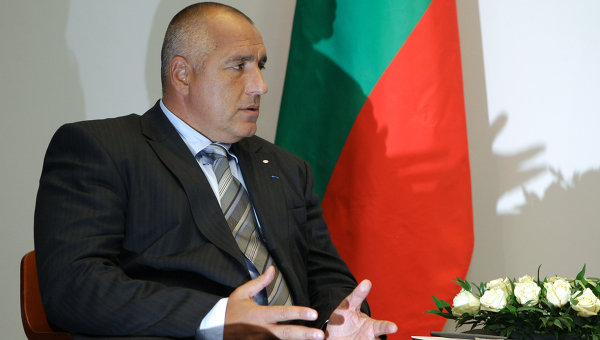
Prime Minister Boiko Borissov of Bulgaria. In response to July’s European Commission report on corruption in his country, Borissov praised the progress his government has made but admitted more work is needed. Photo credit: RIA Novosti/Alexey Druzhinin
One of my primary interests regarding government is how countries transition to democracy from another form of rule, and why some places seem to have more success with this than others. For countries formerly under the influence of the Soviet Union, some have seen democracy establish a strong foothold, whereas others face a constant struggle to fight off (figuratively, though sometimes literally) a return to autocracy.
In 2007, Bulgaria and Romania joined the European Union; at the time both held a degree of openness and fairness in government, but needed more progress (imperfect as the two countries were, the EU felt they’d have a better chance of making reforms stick inside the group than outside). Since then, the European Commission has regularly reported on corruption and the influence of organized crime in both countries. Earlier this month the Commission announced it would be extending its monitoring through 2013.
EC spokesman Mark Gray commented on the decision, “Progress has been made in both Bulgaria and Romania, but the [democratic] process is not yet sustainable and irreversible.”
Of the 2, things seems to going better in Bulgaria. Bulgarian Prime Minister Boiko Borissov pointed out that the EC praised his administration’s “strong political will for reform” for the third straight year. But he also noted, “we are aware that the new approach and the institutional changes within the judiciary are still not achieving the results that we all desire.” Ivanka Ivanova, director of the law program at the Open Society Institute in Sofia, concurs: “There has been some progress, but it’s not enough to meet the expectations of Bulgarian citizens and the European Commission.” Of particular concern is the large amount of influence exerted by organized crime groups in political and economic spheres.
The EC had harsher words for Romania, which two weeks ago saw its president impeached in what is largely seen as a politically motivated play by Prime Minister Victor Ponta to consolidate power and eliminate rivals (see my review of the situation here). “Party political strife cannot justify overriding core democratic principles,” said EC President Jose Manuel Barroso.
Going by Transparency International’s 2011 Corruption Perceptions Index, both Romania and Bulgaria are considered to have a high level of corruption. Bulgaria is the most corrupt of countries in the EU and Western Europe region; Romania is the third most corrupt in the region.
How did things get so bad? How have neighboring former Soviet allies Poland and the Czech Republic advanced in their democratic transitions while Bulgaria and Romania stalled? Carnegie Europe’s Editor in Chief of Strategic Europe Judy Dempsey writes that Poland and the Czech Republic had two key advantages the others lacked: strong opposition movements, which germinated under communism, and commitment to revealing secret police files to the public, which helped encourage accountability and expose corruption. Monica Macovei, former Romanian justice minister, told Dempsey that opening secret files earlier could have helped confront corruption or dismantle entrenched communist networks.
What is unclear to me is how the EC is helping to improve the situation. The commission can admonish Bulgaria and Romania all it wants, but how will it help the countries improve their democratic standing going forward? Priority number one should be to establish specific, clearly understood standards for democratic operation. The EC should also recommend specific actions for Romania and Bulgaria to take to reach those standards. Every country has its own unique challenges, but at least some of what worked in Poland and Czech Republic should be transferable.
Clearly Bulgaria and Romania have more work to do in their democratic development. One certainty is that the more help and support they receive from the EU and others in this regard, the better chance of success they will have.